Contents
- 1 How to Provide Emotional Support and Practical Help to Someone Who Has Experienced a Miscarriage
- 1.1 Understanding the Emotional Impact
- 1.2 Providing Practical Support
- 1.3 FAQ about topic Supporting Someone Who Had a Miscarriage What to Say and How to Help
- 1.3.1 How common is miscarriage?
- 1.3.2 What are some things I can say to someone who has had a miscarriage?
- 1.3.3 How can I help someone who has had a miscarriage?
- 1.3.4 What are some things I should avoid saying to someone who has had a miscarriage?
- 1.3.5 How long does it take to recover emotionally from a miscarriage?
- 1.3.6 What should I say to someone who had a miscarriage?
- 1.3.7 How can I support someone who had a miscarriage?
How to Provide Emotional Support and Practical Help to Someone Who Has Experienced a Miscarriage
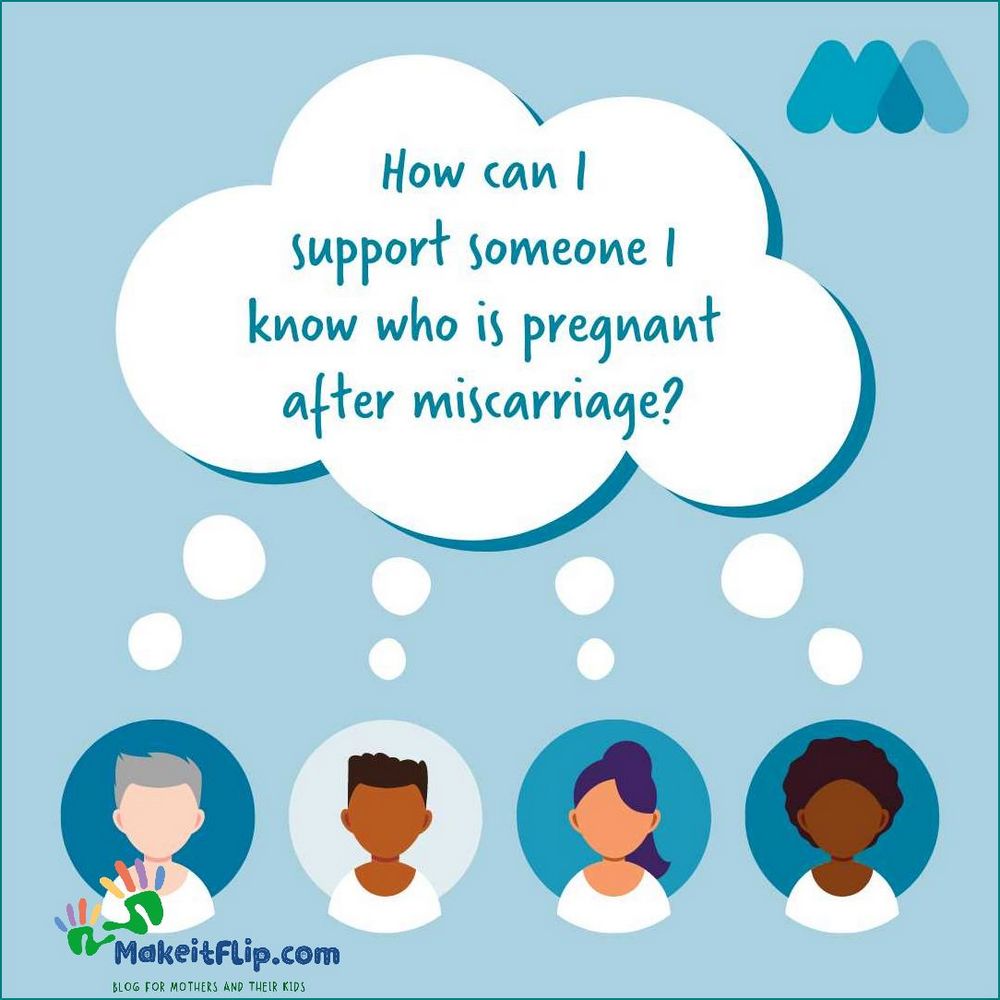
Experiencing a miscarriage can be an incredibly difficult and heartbreaking time for anyone. If someone you know has recently gone through this loss, it’s important to offer your condolences and support. While it can be challenging to find the right words to say, expressing your empathy and sympathy can provide comfort and healing.
One of the most important things you can do is simply be there for your loved one. Let them know that you are available to listen, talk, or even just sit in silence with them. Sometimes, offering a shoulder to cry on or a hand to hold can provide immense strength and comfort during this time of grief.
It’s also important to be mindful of the language you use when offering support. Avoid phrases that may unintentionally minimize their pain or offer false hope. Instead, focus on providing a safe space for them to express their emotions and share their experience. Let them know that their feelings are valid and that you are there to support them unconditionally.
While it may be tempting to try and find a solution or offer advice, it’s important to remember that healing takes time. Instead of trying to fix the situation, offer your presence and support as they navigate their grief. Encourage them to seek professional help if needed and let them know that it’s okay to ask for help.
Ultimately, supporting someone who has had a miscarriage requires empathy, compassion, and understanding. By offering your condolences, support, and hope, you can provide a sense of comfort and strength during this difficult time.
Understanding the Emotional Impact
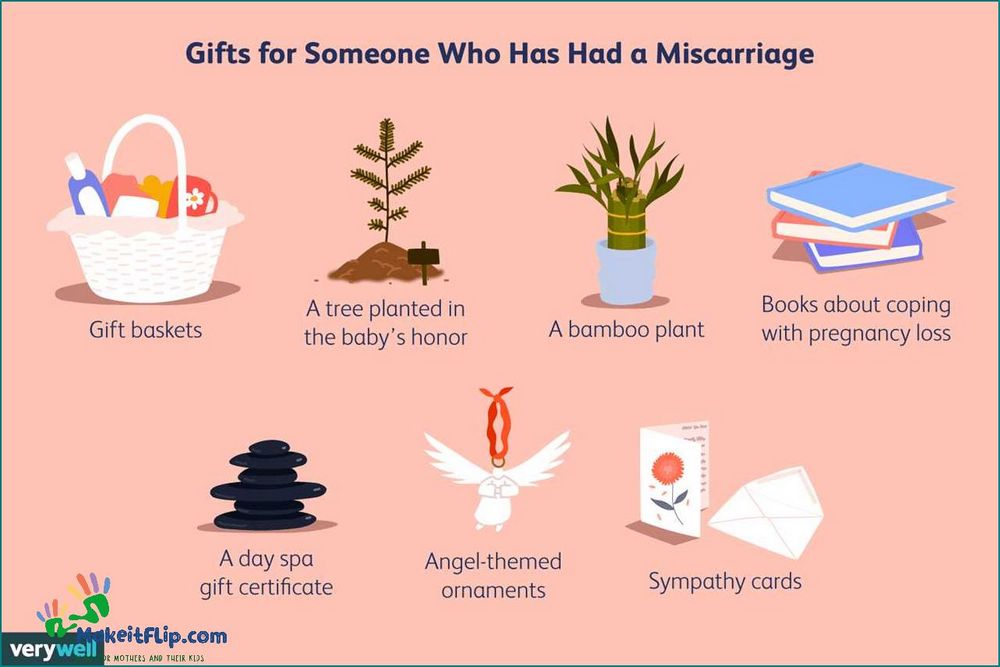
Experiencing a miscarriage can have a profound emotional impact on a person. It is important to approach the situation with healing, sympathy, and understanding. Offering condolences and support can provide a sense of hope and comfort during this difficult time.
Showing empathy towards someone who has had a miscarriage is crucial. Understanding their grief and acknowledging their pain can help them feel heard and validated. It is important to be patient and allow them to express their emotions without judgment.
Many individuals who have experienced a miscarriage may feel a range of emotions, including sadness, anger, guilt, and confusion. It is important to be sensitive to these emotions and offer support in any way possible. This can include listening without interruption, offering a shoulder to cry on, or providing resources for professional help if needed.
Remember that everyone grieves differently, and there is no right or wrong way to process the loss of a pregnancy. What matters most is being there for the person, offering comfort and understanding. Let them know that they are not alone and that you are there to support them through this difficult time.
Acknowledge Their Loss
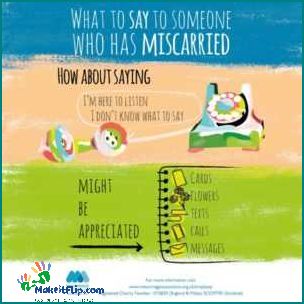
When supporting someone who has had a miscarriage, it is important to acknowledge their loss and express your sympathy. Let them know that you understand the grief they are experiencing and that you are there for them.
Use words of comfort and understanding, such as “I’m so sorry for your loss” or “I can’t imagine how difficult this must be for you.” These simple expressions of condolences can provide a sense of validation and support.
It is also important to offer hope and strength during this challenging time. Let them know that healing is possible and that they are not alone in their journey. Encourage them to lean on their loved ones and seek professional help if needed.
Remember that everyone grieves differently, so it is important to be patient and understanding. Offer a listening ear and a shoulder to lean on, allowing them to express their emotions without judgment.
By acknowledging their loss and providing support, you can help them navigate through the healing process and find comfort in knowing that they are not alone.
Validate Their Feelings
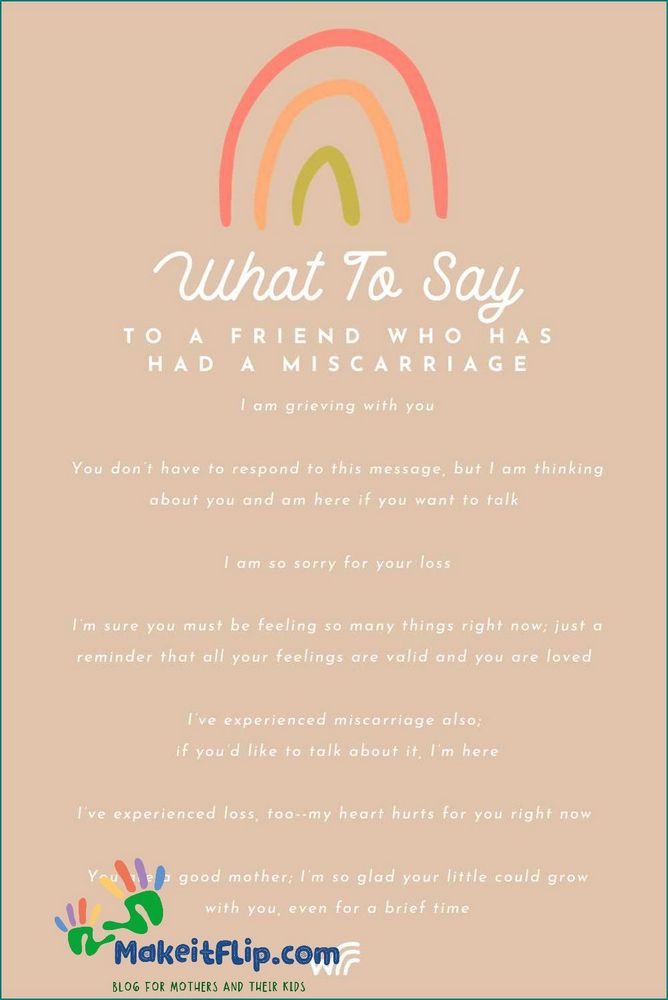
When supporting someone who has had a miscarriage, it is important to validate their feelings. Grief and sadness are natural responses to such a loss, and it is crucial to acknowledge and validate these emotions.
Offer your condolences and let them know that you are there to support them during this difficult time. Use comforting words and expressions to show empathy and understanding. Let them know that their feelings are valid and that it is okay to grieve.
Remind them of their strength and resilience, emphasizing that healing takes time and that they are not alone in their journey. Encourage them to lean on their support system and seek professional help if needed.
Provide hope by sharing stories of others who have gone through similar experiences and have found healing and happiness again. Let them know that there is light at the end of the tunnel and that they will get through this challenging time.
Overall, validating their feelings means acknowledging their pain, offering support and empathy, and providing hope for healing and recovery. Remember to be patient, understanding, and compassionate as they navigate through their grief.
Offer a Listening Ear
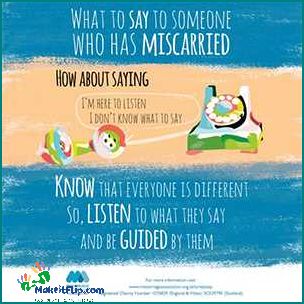
One of the most important things you can do to support someone who has had a miscarriage is to offer a listening ear. Grief and healing after a miscarriage can be a complex and emotional process, and sometimes all a person needs is someone who is willing to listen without judgment or interruption.
When offering a listening ear, it’s important to create a safe and comfortable space for the person to express their feelings. Let them know that you are there to support them and that you are available to talk whenever they need. Use words of comfort and condolences to express your sympathy and let them know that you understand their pain.
During conversations, be patient and understanding. Allow the person to share their thoughts and feelings at their own pace, and avoid offering unsolicited advice or trying to fix their grief. Instead, focus on providing emotional support and reassurance. Let them know that their feelings are valid and that it’s okay to grieve.
Offering a listening ear also means being present and attentive. Avoid distractions and give the person your full attention. Show empathy and understanding by using phrases like “I’m here for you,” “I can’t imagine how difficult this must be for you,” or “I’m so sorry for your loss.” These words of support can provide comfort and strength during a time of grief.
Remember that grief after a miscarriage is a personal journey, and everyone experiences it differently. Be patient and understanding, and offer hope and support throughout the healing process. Your presence and willingness to listen can make a significant difference in someone’s grief journey, and your sympathy and support can help them find healing and strength.
Providing Practical Support
When supporting someone who has experienced a miscarriage, it is important to offer practical support alongside emotional support. Practical support can help ease the healing process and provide comfort during a difficult time of grief and loss.
Here are some practical ways you can support someone who has had a miscarriage:
| Offering condolences and sympathy: | Express your condolences and sympathy for their loss. Let them know that you are there for them and that you are deeply sorry for their pain. |
| Providing a listening ear: | Be a supportive listener and allow them to express their feelings and emotions. Show empathy and validate their experiences. |
| Assisting with practical tasks: | Offer to help with practical tasks such as cooking meals, cleaning, or running errands. These small acts of kindness can provide much-needed relief during a time of grief. |
| Offering childcare: | If they have other children, offer to take care of them for a few hours or a day to give the parents some time to rest and heal. |
| Providing resources: | Research and provide them with resources such as support groups, therapists, or books that may help them navigate their grief and find hope. |
| Offering to accompany them: | Offer to accompany them to medical appointments or support group meetings. Having someone by their side can provide comfort and reassurance. |
Remember, practical support can make a significant difference in someone’s healing process after a miscarriage. By offering your help and being there for them, you can provide comfort and hope during this difficult time.
Help with Household Chores
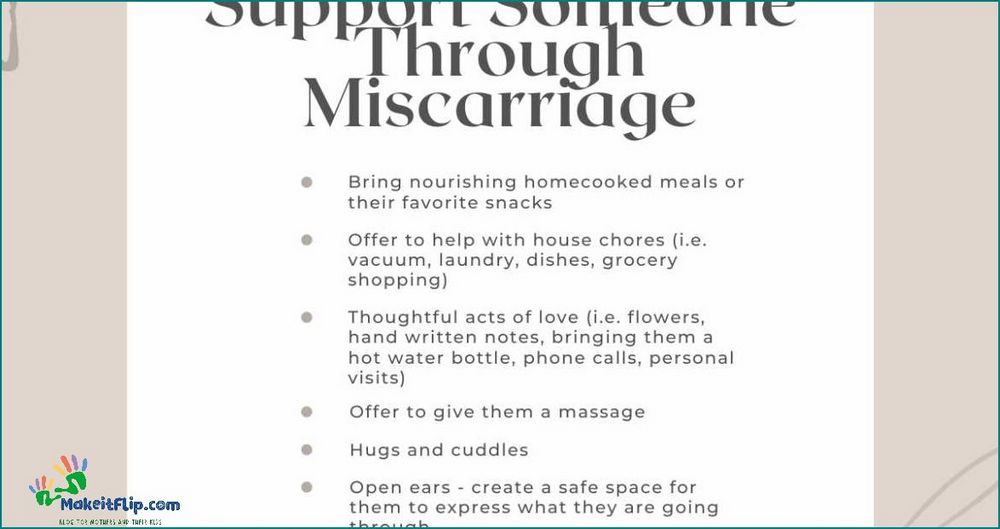
When someone you know has experienced a miscarriage, offering practical support can be just as important as offering emotional support. One way to show empathy and sympathy is by helping with household chores.
Grief can be overwhelming, and everyday tasks like cooking, cleaning, and doing laundry can feel like insurmountable obstacles. By offering to take on some of these responsibilities, you can provide much-needed relief and support to your loved one during this difficult time.
Here are some ways you can help with household chores:
- Offer to cook meals or bring over pre-made meals that can be easily reheated.
- Help with cleaning by offering to vacuum, dust, or mop the floors.
- Do the laundry, including washing, drying, folding, and putting away clothes.
- Take care of grocery shopping and errands so your loved one doesn’t have to worry about them.
- Offer to take care of any pets or plants that need attention.
- Assist with childcare, if applicable, by taking care of the children or helping with school drop-offs and pick-ups.
Remember to offer your condolences and express your hope for healing and strength. Let your loved one know that you are there to support them in any way you can, and that you understand the challenges they are facing.
By helping with household chores, you can provide practical support that allows your loved one to focus on their grief and healing process. Your assistance will not only lighten their load but also show them that they are not alone during this difficult time.
FAQ about topic Supporting Someone Who Had a Miscarriage What to Say and How to Help
How common is miscarriage?
Approximately 10-20% of pregnancies end in miscarriage, making it a relatively common experience.
What are some things I can say to someone who has had a miscarriage?
It’s important to offer your condolences and let them know you’re there for support. You can say things like “I’m so sorry for your loss” or “I’m here for you if you need to talk or if there’s anything I can do.”
How can I help someone who has had a miscarriage?
Offering practical support, such as cooking meals or running errands, can be helpful. Additionally, just being there to listen and provide emotional support can make a big difference.
What are some things I should avoid saying to someone who has had a miscarriage?
Avoid phrases like “It wasn’t meant to be” or “You can always try again.” These can be dismissive of their grief and minimize their experience.
How long does it take to recover emotionally from a miscarriage?
There is no set timeline for emotional recovery after a miscarriage. It can vary greatly from person to person. It’s important to be patient and understanding with the grieving individual.
What should I say to someone who had a miscarriage?
When talking to someone who had a miscarriage, it’s important to express your condolences and let them know that you are there for them. You can say something like, “I’m so sorry for your loss. I can’t imagine how difficult this must be for you. Please know that I am here for you and I’m here to listen if you want to talk.”
How can I support someone who had a miscarriage?
Supporting someone who had a miscarriage can be done in various ways. Firstly, it’s important to be there for them and let them know that you are available to listen and provide emotional support. You can also offer practical help, such as cooking meals or running errands for them. Additionally, it’s crucial to be sensitive to their needs and not push them to talk about their feelings if they are not ready. Simply letting them know that you are there for them can make a big difference.
I’m Diana Ricciardi, the author behind Makeitflip.com. My blog is a dedicated space for mothers and their kids, where I share valuable insights, tips, and information to make parenting a bit easier and more enjoyable.
From finding the best booster seat high chair for your child, understanding the connection between sciatica and hip pain, to exploring the benefits of pooping in relieving acid reflux, I cover a range of topics that are essential for every parent.
My goal is to provide you with practical advice and solutions that you can easily incorporate into your daily life, ensuring that you and your child have the best possible experience during these precious years.
